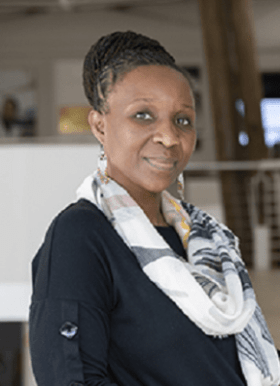
Natsayi Chimbindi, PhD
HIGH IRI Fellow | Africa Health Research Institute
Dr. Natsayi Chimbindi is a faculty member and a Wellcome Trust international training fellow at Africa Health Research Institute (AHRI), an honorary associate professor at the Institute of Global Health, University College London (UCL), honorary lecturer in the School of Nursing and Public Health at the University of KwaZulu-Natal and an honorary research associate at Liverpool School of Tropical Medicine International Public Health. She is also a fellow for the HIV, Infectious Disease and Global Health Implementation Research Institute, sponsored by the Center for Dissemination and Implementation at the Institute for Public Health at Washington University in St. Louis to develop into a dissemination and implementation researcher.
Her specific areas of expertise include development and evaluation of adolescent and young people HIV prevention and school-based interventions. Her research interests are in co-developing and evaluating theoretically derived interventions to deliver sexual health and HIV prevention interventions in schools. She received an AHRI/UCL early career fellowship in 2019 and two seed-funding grants (2020) from NIH Adolescent Health Implementation Science Network (AHISA) and AHRI Covid-19 seed funding to develop this work. In 2021 she received a prestigious Wellcome Trust international training fellowship to expand on her research interests.
During her postdoctoral years, Natsayi was the program manager for the HIV prevention research program at AHRI. She led on major mixed-method evaluation and development of complex HIV prevention interventions among young people at AHRI. She led on two trials on distribution of HIV self-testing kits (STAR) and linkage to care for young people and a pilot trial to optimize peer (Thetha Nami) delivery of antiretroviral based HIV prevention and care to adolescents and young adults in rural KwaZulu-Natal (Isisekelo Sempilo) HIV prevention. She graduated with a PhD from the University of the Witwatersrand in 2017 and has led on several key outputs from the HIV prevention work.